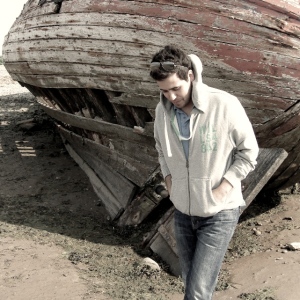I’m expanding my series featuring fantastic authors to include fantastically creative people across the different mediums, which is why I’ve invited the talented Douglas Holgate to drop by.
Watch out for the give-away question at the end of the interview.
Q: We met at Supanova and hung out at the cocktail party. Do you get to many of the Supanovas? Is it fun to mix with other illustrators and talk shop?
I’ve been to Supanova on the east coast fairly consistently over the last 3 or 4 years. I’ve yet to make the trek to Perth but I’m keen (and not just because I’ve never been to Perth).
Absolutely one of the best parts of the shows is mixing with peers, it’s always great to catch up, especially with people out of state and while the internet keeps us all up to date on what we’re up to it’s not a substitute for a drink and chat. I’ve found of late though I actually really like meeting and talking shop with people NOT doing what I’m doing…but working in similar creative fields. I had a ball talking to all the writers just recently at the Brisbane show (where we met), and came away with different perspectives, work ethics and ideas around publishing and the like.
Q: Back in the 80s when I was working as an illustrator in Melbourne we used to have to make appointments with the art directors of publishing houses, lug our folios in and be interviewed in hope that they’d send us work. Now artists have pages on all sorts of sites, as well as their own blog sites, to promote their artwork. (eg. The Loop. Illustrators Australia). Do you still have to do the ‘meet and greet’ with art directors or is it all done over the internet now?
I was saying to someone the other week that I have no idea how I’d work if I didn’t have a scanner, a computer and email. I can’t even imagine what it must have been like to navigate the creative process via the postal system. I do a lot of work for the US market so predominantly I work exclusively with them via the likes of email and sometimes skype. Local clients I do like to try and get a face to face with at some point. It’s nice to put a face and a voice to a name.
As for approaching clients for potential work, when I first started freelancing about 10 years ago it was still a phone call to the AD and physical hard copies of my folio sent to them if they were keen to see it. Now though…it’s pretty much all email and the internet. Which I think is good for ease of breaching that inner sanctum (It makes it less intimidating), and promotion wise you can have global reach instantly. But there is still something about even just talking to someone on the phone and a physical copy of your work in that person’s hands which can’t be replaced (Though I am a bit of a sucker for beautiful printed objects).
 Q: You illustrated the Zack Proton (genuine intergalactic hero) books. Was this a chance to let your ‘inner kid’ loose? And how did you hook up with the writer, Brian Anderson, (I see he lives in Austen, Texas)?
Q: You illustrated the Zack Proton (genuine intergalactic hero) books. Was this a chance to let your ‘inner kid’ loose? And how did you hook up with the writer, Brian Anderson, (I see he lives in Austen, Texas)?
I have such a soft spot for Zack proton. Not just a ridiculous, over the top, irreverent and just plain FUN series but also my first big time published work in the US.
All set up through my agent. The way it works is a publisher has a project, they approach my agent and ask if I’m free to work on the series and if I’d like to…and then I (always) say yes.
I then will back and forth with the publishers art director, receive a manuscript, any art direction they’re keen on, cover concepts, internal illustrations etc.
It’s very very rare that I’ll actually talk to the writer at all, especially during the process of putting the books together. This seems to be standard in the industry, which is a bit of a shame…but I can understand it from the publisher’s perspective, they want control of the books and don’t want creative decisions made without being in the loop.
I did however end up after the series was published getting in touch with Brian and we’ve stayed in touch every since, which is great!
 Q: You worked on The Amazing Joy Buzzards from Image Comics, which is about an adventure rock-and-roll band. Look like lots of fun. When you work on a project like this how closely do you collaborate with the writer? Are there really tight deadlines?
Q: You worked on The Amazing Joy Buzzards from Image Comics, which is about an adventure rock-and-roll band. Look like lots of fun. When you work on a project like this how closely do you collaborate with the writer? Are there really tight deadlines?
I sort of already answered this one, but there are always exceptions to the rule. For original material I’m generating with writers to pitch, or self publish then absolutely it’s a complete collaboration.
Of course every writer is different and in some cases they’re happy to let me go away and work on the visual design of these things with minimal guidance. Others I’ve worked with have a strong vision and want to see it realised, from character design and aesthetic through to direction of what is happening specifically in a given scene. Writers like Alan Moore (whom I’ve not worked with) are notoriously specific about their art direction that in some cases almost becomes a novel in itself.
 I do like a middle ground though. And there is nothing quite like brainstorming, back and forthing with someone and creating worlds and plots and characters from scratch.
I do like a middle ground though. And there is nothing quite like brainstorming, back and forthing with someone and creating worlds and plots and characters from scratch.
For things like Joy Buzzards there was already an established universe that I was coming in to play around in. So the main characters and the like had pretty much already been fully realised. Which isn’t to say I didn’t have any creative input, it’s just a different challenge to say something original with someone else’s characters.
 Q: And you worked on Super Chicken Nugget boy. When you were doing your Post Graduate Degree in Illustration at the University of Newcastle did you think you’d end up drawing animated chicken nuggets? LOL Do you have a personal project that you are madly working on in your spare time?
Q: And you worked on Super Chicken Nugget boy. When you were doing your Post Graduate Degree in Illustration at the University of Newcastle did you think you’d end up drawing animated chicken nuggets? LOL Do you have a personal project that you are madly working on in your spare time?
Haha! YES! Well…sort of. Maybe not chicken nuggets, but certainly I was aiming my sights on comics and material for kids and younger readers. There was a small group of us who were constantly getting in strife with the lecturers for pushing our project work in the comic book, cartooning direction. We were repeatedly told there was no future in it. Ironically I’m pretty sure we’re the only ones from our graduating class now working fulltime as artists and designers.
And I’ve got a list as long as eternity of personal projects. It’s one of the things that frustrates me some about what I do. IT TAKES SO LONG! If only I could snap my fingers, get that thing that’s gnawing at the back of my head DONE and then move onto the next thing. OH…and be paid a gazillion dollars for it…that would seriously not only make me happy but the world!
But yes. Right now I’ve got a couple of things in the works that I’m really excited about. The main one taking up all my time (When I get it) is an all ages graphic novel with a fantastic local Melbourne (though she’s been swanning about the streets of New York for the last 12 months) kids comic writer, Jen Breach.
Q: On Twitter we were talking about fantasy movies we loved like Mystery Men. “We struck down evil with the mighty sword of teamwork and the hammer of not bickering.” What were your biggest influences when you were growing up?
 Oh, you mean the list of things that never seems to end? It’s funny, it’s only in the last couple of years since I’ve had a little boy that I’m rediscovering things that I used to love and adore as a kid…and I realise are a direct influence on what I’m doing right now. They’re obviously always in the back of your head, consciously or unconsciously, but tracking down vintage copies of Richard Scarry’s busy town series to introduce to him, looking at them and having this epiphany that he is a major influence is pretty wild. I spent some formative years in the UK and was obsessed with weekly kids comics magazines like Beano and Dennis The Menace. A lot of annuals like Eagle. Was a big fan of Roald Dahl and CS Lewis. And long form comics wise I was reading things like Asterix, Tintin and Lucky Luke a long time before I discovered American comics. Herge and Uderzo definitely are the two seminal influences though. Relatively strict realism of form with a cartoon sensibility inhabiting that world.
Oh, you mean the list of things that never seems to end? It’s funny, it’s only in the last couple of years since I’ve had a little boy that I’m rediscovering things that I used to love and adore as a kid…and I realise are a direct influence on what I’m doing right now. They’re obviously always in the back of your head, consciously or unconsciously, but tracking down vintage copies of Richard Scarry’s busy town series to introduce to him, looking at them and having this epiphany that he is a major influence is pretty wild. I spent some formative years in the UK and was obsessed with weekly kids comics magazines like Beano and Dennis The Menace. A lot of annuals like Eagle. Was a big fan of Roald Dahl and CS Lewis. And long form comics wise I was reading things like Asterix, Tintin and Lucky Luke a long time before I discovered American comics. Herge and Uderzo definitely are the two seminal influences though. Relatively strict realism of form with a cartoon sensibility inhabiting that world.
Q: If you could go back and give that starry-eyed kid advice, what would it be?
Get serious sooner. YOU’RE WASTING TIME!
Q: I was prompted to start this series of interviews because there seems to be a perception in the US and the UK that fantasy (in books) is a bit of a boy’s club. I’ve come across quite a bit of talk on the blogs recently about female comic artists and writers, and their lack of representation in large companies like DC. Have you come across this in your professional life?
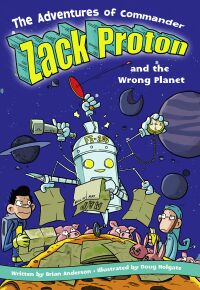 Not really no. I’d argue that illustration is actually a pretty even spread, in my experience anyway. There are as many female illustrators (if not more) whom I know and love working fulltime and being consistently published by major publishers. Also the majority of art directors I’ve worked with at the major US and Australian publishers have been women.
Not really no. I’d argue that illustration is actually a pretty even spread, in my experience anyway. There are as many female illustrators (if not more) whom I know and love working fulltime and being consistently published by major publishers. Also the majority of art directors I’ve worked with at the major US and Australian publishers have been women.
I’m a little torn on the issue of women in comics. On one hand I think that It’s pretty well established that there is indeed a boys club at the upper echelons of the likes of the major publishers, and obviously being a man I have no idea what that boys club mentality would be like to breach being a female creator. Not to mention the weird curtain wall of fandom thing you have to scale before even making your way to the keep.
But I also think that now is probably the best time in the history of comics for women. I can name you dozens who might not be published by the likes of DC or Marvel but they’re making original comics that are above and beyond in creativity, aesthetic, storytelling and vision than any run of the mill churned out monthly.
The push by established book publishers such as Random House and Scholastic into graphic novels, Independent comics publishers like IDW, First Second and Adhouse, the rise and rise of webcomics, artist sites like Deviant Art, Concept Art and the growing tendency for a lot of animators dipping their toes into comics making are all being driven by some incredible amazingly talented female cartoonists. I don’t see that stopping anytime soon.
This can’t help but change attitudes eventually at the dinosaurs. You know…if working on spiderman is something that you really want to do.
Q: Following on from that, does the gender of the writer/artist change your expectations when you approach their work?
 No not at all. If it’s well written, drawn, crafted and published I’m all over it. You know…I read my first babysitters club a few years ago and LOVED it, all because it was adapted by one of my favourite cartoonists (Raina Telgemeier) into a brilliant graphic novel.
No not at all. If it’s well written, drawn, crafted and published I’m all over it. You know…I read my first babysitters club a few years ago and LOVED it, all because it was adapted by one of my favourite cartoonists (Raina Telgemeier) into a brilliant graphic novel.
There are as many male creators I like and don’t like as female. And none of that is based on gender it’s just about the work they create.
I don’t go into a movie or a novel thinking “oh it’s directed or written by a woman therefore it’s going to be formula X.”
Certainly there are directors and writers and creators who work in specific genres so you’re going to consume that material based on that. But that has little to do with gender and more to do with the genre’s I appreciate.
I think if a creator is specifically broaching topics of gender or social acceptance or struggle and it’s a key part of their approach or the material they’re producing then absolutely you view that work with that in mind. And that’s probably why you’re reading or watching it in the first place.
At the end of the day it should be about creating the best material you can, and letting your story speak for itself regardless of gender.
The best work always will.
Q: And here’s the fun question. If you could book a trip on a time machine, where and when would you go, and why?
Rowena, this isn’t the fun question, this is the HARD question! I’m a pretty mad history buff…can I go EVERYWHERE?!
God…just one?
I love pre history…but I’m not sure I’d want to get eaten by a giant mosquito (It’s not the dino’s you’ve got to watch out for).
Adore American history…from Revolution, The Westward push to Civil war to Cold War and modern politics.
I’m doing a lot of reading and playing around with Gallo/Romano Britain at the moment for a project. So I’m a little obsessed with that. And Roman history in particular…so maybe Ancient Rome?
Do I really want to gad about in tartan and blue body paint screaming murder at Roman legionaries in their incredibly well drilled formations? Yes…probably. So I think I’ll go there. But only if I can use the time machine again to scoot to medieval England for lunch, then shoot to Aztec south America for a couple of days and then over to Ancient China for tea and then take a break on a circumnavigation of the globe with Magellan, back in time for dinner with Caravaggio.
(And then wake up in WWII occupied France.)
To win a copy of Zinc Alloy and Super Chicken Nugget Boy here’s the give-away Question:
What was your favourite comic book character when you were growing up?
Follow Doug on Twitter: @douglasbot
See Doug’s Blog
My folio is here – http://www.flickr.com/photos/douglasbot/sets/72157627375431276/with/3265305994/
But some of my favourite (read, newer) images are at these links –
http://www.flickr.com/photos/douglasbot/5830416545/in/set-72157627375431276
http://www.flickr.com/photos/douglasbot/6304341159/in/photostream
http://www.flickr.com/photos/douglasbot/5239949004/in/set-72157627375431276
http://www.flickr.com/photos/douglasbot/5308333564/in/set-72157627375431276
http://www.flickr.com/photos/douglasbot/4673721219/in/set-72157627375431276
http://www.flickr.com/photos/douglasbot/4884587173/in/set-72157627375431276
http://www.flickr.com/photos/douglasbot/2208125088/in/set-72157627375431276
http://www.flickr.com/photos/douglasbot/3265305994/in/set-72157627375431276

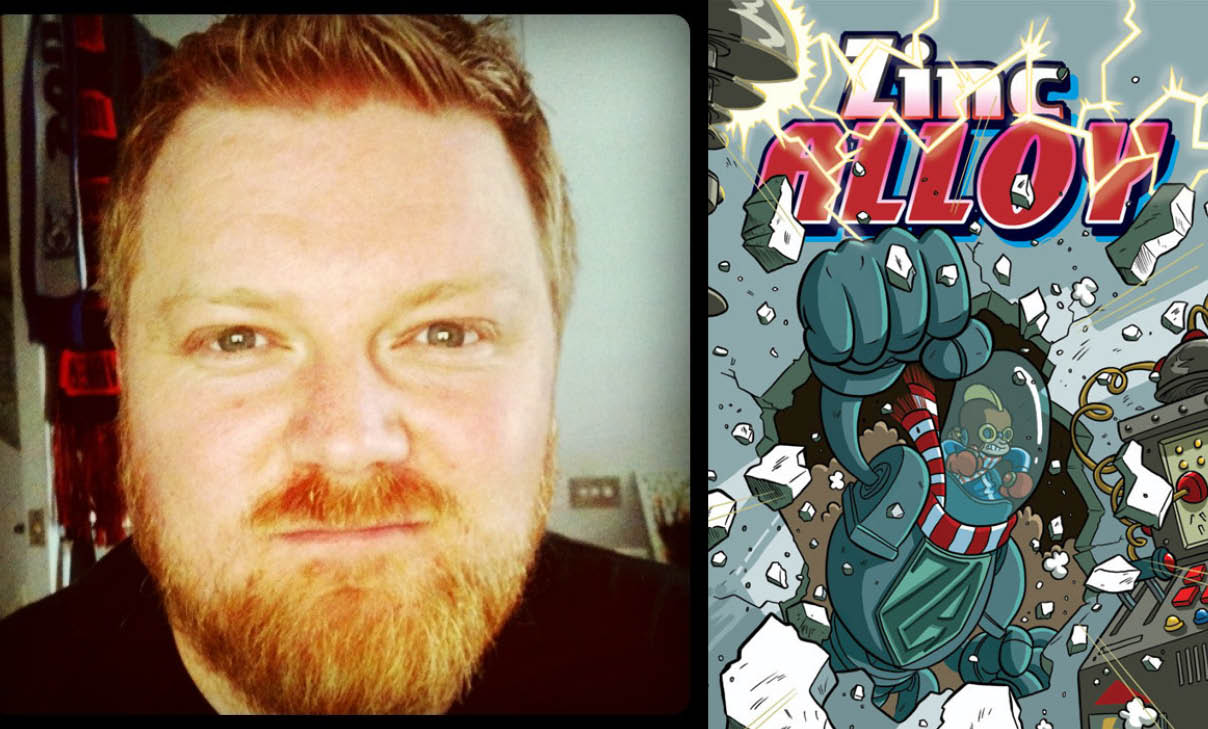

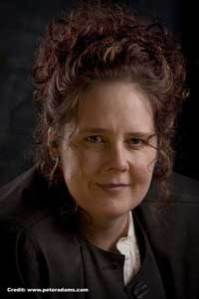










![Newton-CityOfRuinPBUK[3]](http://writersagainstobscurity.files.wordpress.com/2011/11/newton-cityofruinpbuk3.jpg?w=198)






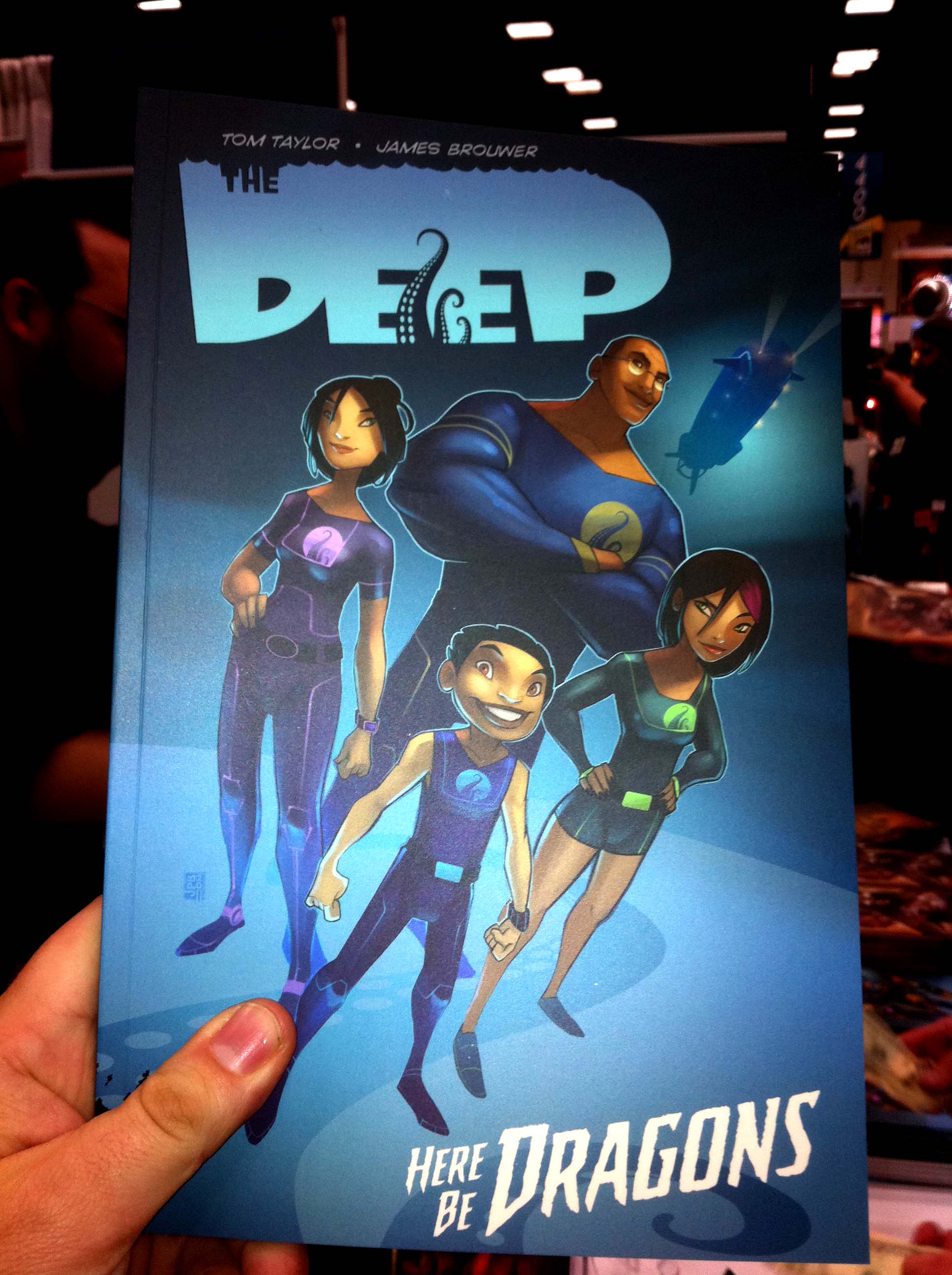

















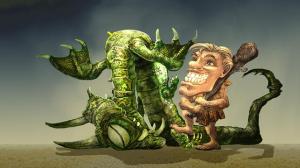





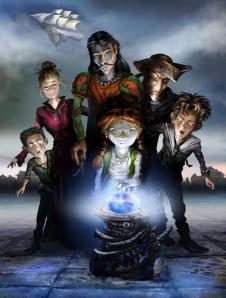








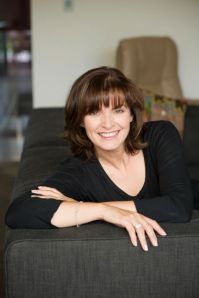
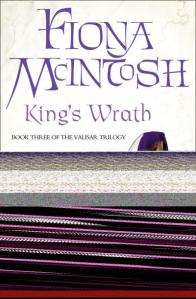







![Newton-CityOfRuinPBUK[3]](http://writersagainstobscurity.files.wordpress.com/2011/11/newton-cityofruinpbuk3.jpg)
